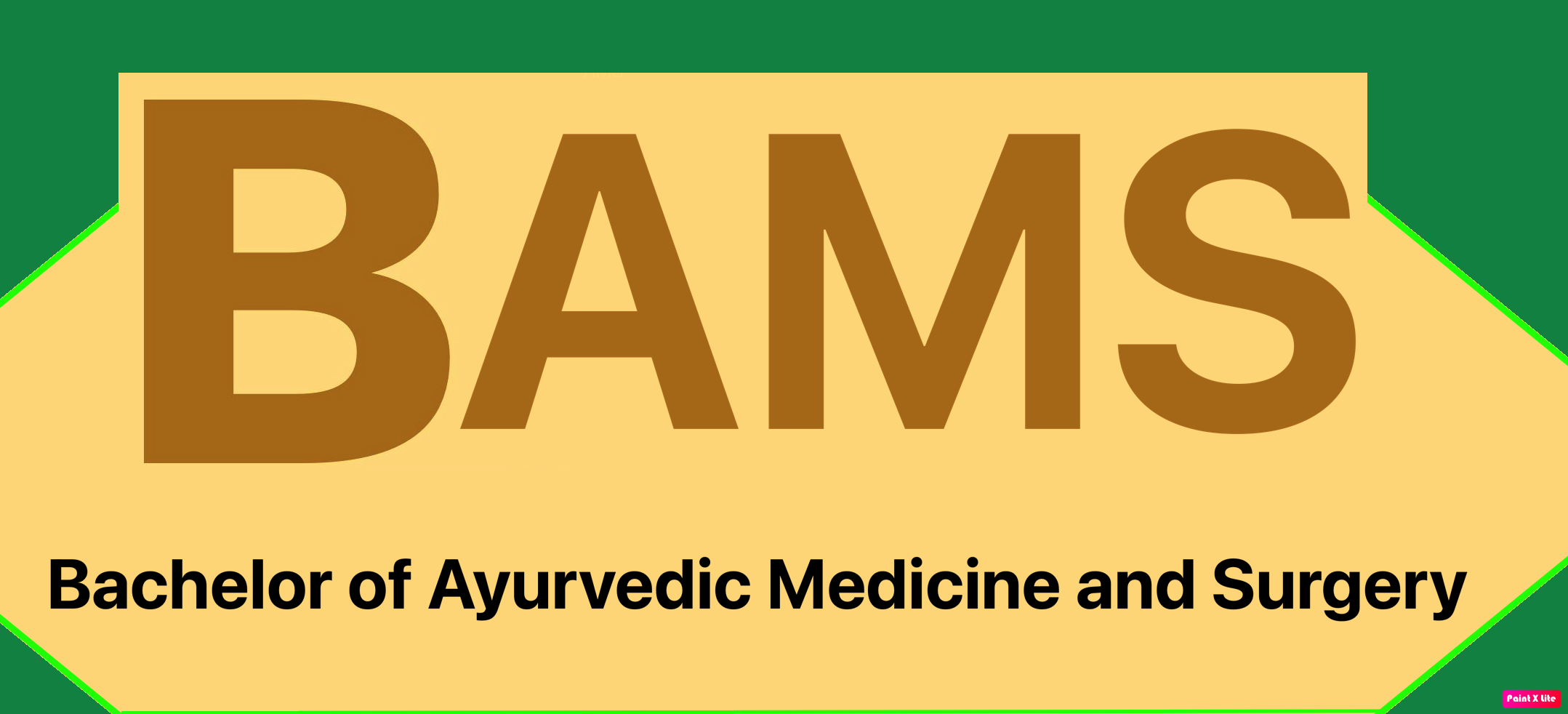In a world increasingly seeking natural and preventive healthcare solutions, Ayurveda, the ancient Indian system of medicine, is experiencing a remarkable resurgence. The Bachelor of Ayurveda Medicine and Surgery (BAMS) course equips aspiring practitioners with the knowledge and skills to become proficient Ayurvedic doctors. This comprehensive guide delves into the BAMS course, exploring its curriculum, career opportunities, and the path to becoming a qualified BAMS graduate.
Understanding BAMS: A Blend of Tradition and Science
The BAMS ( Bachelor of Ayurveda Medicine and Surgery ) program is a five-and-a-half-year undergraduate degree that bridges the gap between traditional Ayurvedic wisdom and modern scientific advancements. The curriculum encompasses a vast array of subjects, including:
- Foundational Ayurvedic Principles: Students gain a thorough understanding of Ayurvedic philosophy, including concepts like the Panchamahabhutas (five elements), Tridosha theory (three humours), and the importance of achieving a balanced state of health.
- Ayurvedic Diagnosis: Methods like pulse diagnosis, Prakriti analysis (body constitution), and examination of tongue and nails are explored, enabling students to assess health imbalances.
- Ayurvedic Treatment Modalities: The BAMS course delves into various Ayurvedic treatment modalities like Panchakarma (detoxification therapy), herbal medicine, dietary modifications, lifestyle recommendations, and therapeutic procedures like Shirodhara and Kativasti.
- Modern Medical Sciences: The curriculum also integrates foundational knowledge of anatomy, physiology, pathology, and pharmacology, equipping graduates to bridge the gap between Ayurveda and modern medicine.
- Clinical Training: BAMS programs place significant emphasis on practical training. Students gain hands-on experience in diagnosing and treating patients under the supervision of experienced Ayurvedic doctors in hospital settings.
A Rewarding Career Path: Diverse Opportunities for BAMS Graduates
The BAMS degree opens doors to a fulfilling professional journey:
- Clinical Practice: BAMS graduates can establish private clinics, work in Ayurvedic hospitals and wellness centres, or collaborate with allopathic doctors to offer integrative healthcare solutions.
- Public Health Sector: Government initiatives are promoting Ayurveda in healthcare. BAMS graduates can find opportunities in public health departments, primary healthcare centres, and government-sponsored wellness programs.
- Panchakarma Specialist: With additional training, BAMS graduates can specialize in Panchakarma, offering detoxification and rejuvenation therapies in spas and wellness centres.
- Education and Research: BAMS graduates with a passion for teaching can pursue a career in Ayurvedic colleges, while research-oriented individuals can contribute to the advancement of evidence-based Ayurveda.
- Entrepreneurship: The growing demand for Ayurvedic products presents opportunities for BAMS graduates to establish businesses focused on herbal product development or Ayurvedic wellness centres.
The Road to Becoming a BAMS Graduate: Eligibility and Admission Process
To embark on a BAMS journey, you must fulfil specific eligibility criteria:
- Educational Qualification: Completion of 10+2 (or equivalent) from a recognized board with Physics, Chemistry, and Biology (PCB) as core subjects.
- Minimum Marks: The minimum marks required for eligibility can vary depending on the college and reservation category. Typically, a minimum aggregate of 50% in PCB subjects is mandated for the general category. However, some colleges might have a higher cut-off percentage.
- NEET Qualification: Securing a qualifying score in the National Eligibility cum Entrance Test (NEET) is mandatory for BAMS admission across India. NEET is a national-level entrance exam conducted annually.
The BAMS admission process typically involves:
- Qualifying NEET: Appearing for and securing a qualifying score in NEET.
- State-Level Counseling: Participating in the centralized counselling process conducted by the respective state authorities for BAMS admissions.
- Seat Allotment: Based on your NEET score, state rank, and college preferences, seats will be allotted during the counselling process.
- College Admission: Completing admission formalities at the allotted college, including submitting required documents and paying fees.
Exploring Your Options: A Wide Range of BAMS Colleges in India
India boasts a vast network of Ayurvedic colleges offering BAMS programs. These colleges can be categorized as:
- Government Colleges: Government-run colleges typically offer BAMS programs at a lower cost compared to private institutions.
- Private Colleges: Private colleges often have modern infrastructure and may offer specialized programs alongside the core BAMS curriculum.
Conclusion: Embarking on a Fulfilling Ayurvedic Journey
The BAMS course presents a unique opportunity to delve into the profound wisdom of Ayurveda and contribute to the growing field of holistic healthcare. With its emphasis on preventive care, natural remedies, and a holistic approach to well-being, a BAMS degree empowers you to make a positive impact on the lives of others. If you’re passionate
